June 24, 2014 •
Our June Photo Scrapbook
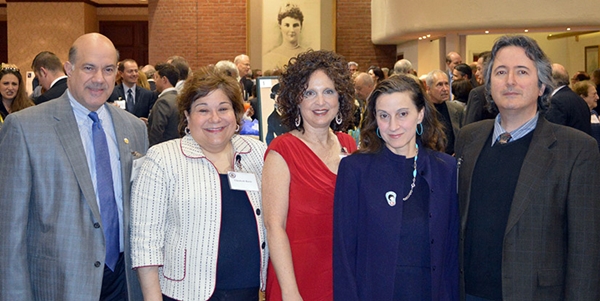
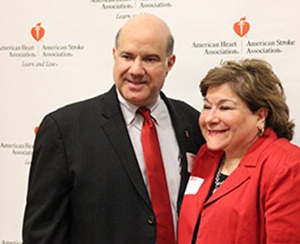
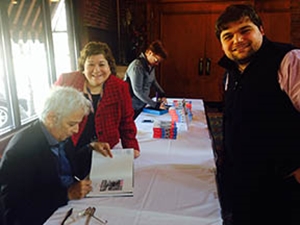

June 24, 2014 •
Florida Gov. Signs Ethics Bill
Gov. Rick Scott signed Senate Bill 846 into law on Friday, June 20, 2014. The ethics bill takes effect July 1, 2014 and requires lobbyists at Florida’s five water management districts to register and file periodic reports with the Lobbyist […]
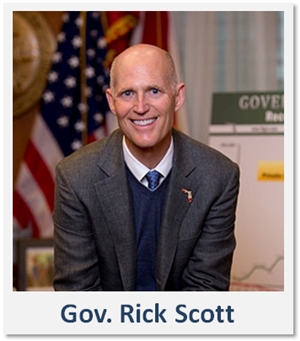 Gov. Rick Scott signed Senate Bill 846 into law on Friday, June 20, 2014. The ethics bill takes effect July 1, 2014 and requires lobbyists at Florida’s five water management districts to register and file periodic reports with the Lobbyist Registration Office of the Florida Legislature.
Gov. Rick Scott signed Senate Bill 846 into law on Friday, June 20, 2014. The ethics bill takes effect July 1, 2014 and requires lobbyists at Florida’s five water management districts to register and file periodic reports with the Lobbyist Registration Office of the Florida Legislature.
The original version of the bill would have required lobbyist registration for individuals seeking to influence any of the 136 independent special districts statewide. Such independent special districts include water management districts, hospital districts, and any other independent special district that exercises ad valorem taxing authority. The final version, however, only requires lobbyist registration for individuals seeking to influence Florida’s water management districts.
Rep. Kathleen Passidomo considered the original version of the bill too broad, thus revising the bill in committee to only impose lobbyist registration on water management districts. Passidomo has said if registration works smoothly at the water districts, the Legislature may consider requiring more special districts to register lobbyists.
June 24, 2014 •
RI General Assembly Recessed on Saturday
The General Assembly concluded its session and recessed on June 21, 2014. Any bills submitted to Gov. Lincoln Chafee must be signed or vetoed by July 1. There is no pocket veto. Photo of the Rhode Island State Capitol courtesy […]
 The General Assembly concluded its session and recessed on June 21, 2014.
The General Assembly concluded its session and recessed on June 21, 2014.
Any bills submitted to Gov. Lincoln Chafee must be signed or vetoed by July 1.
There is no pocket veto.
Photo of the Rhode Island State Capitol courtesy of Garrett A. Wollman on Wikimedia Commons.
June 24, 2014 •
Vermont Lobbying Law Changes Effective July 1
House Bill 735, signed by the governor on June 16, 2014, made changes to the lobbyist fee structure. Effective July 1, 2014, the initial registration fee for lobbyists and lobbyist employers will increase from $25 to $60. The employer fee […]
 House Bill 735, signed by the governor on June 16, 2014, made changes to the lobbyist fee structure. Effective July 1, 2014, the initial registration fee for lobbyists and lobbyist employers will increase from $25 to $60. The employer fee for each additional lobbyist will increase from $5 to $15. The lobbyist fee for each additional employer will also increase from $5 to $15.
House Bill 735, signed by the governor on June 16, 2014, made changes to the lobbyist fee structure. Effective July 1, 2014, the initial registration fee for lobbyists and lobbyist employers will increase from $25 to $60. The employer fee for each additional lobbyist will increase from $5 to $15. The lobbyist fee for each additional employer will also increase from $5 to $15.
Senate Bill 86 was amended this year to include additional changes to the state’s lobbying law. Effective July 1, 2014, the Secretary of State’s Office will no longer mail disclosure forms to lobbyists and employers. Forms will be made available on the website no later than 30 days prior to the deadline.
Additionally, contracts with legislators or administrative officials are no longer treated as a type of expenditure and will be reported on their own line on the form.
June 23, 2014 •
Wisconsin PAC Limits Challenged
A federal lawsuit has been filed to challenge the state law limiting campaign contributions to candidates from political action committees (PACs). The CRG Network (CRG), a PAC working to elect conservative candidates, filed the lawsuit in the Milwaukee U.S. District […]
 A federal lawsuit has been filed to challenge the state law limiting campaign contributions to candidates from political action committees (PACs).
A federal lawsuit has been filed to challenge the state law limiting campaign contributions to candidates from political action committees (PACs).
The CRG Network (CRG), a PAC working to elect conservative candidates, filed the lawsuit in the Milwaukee U.S. District Court against the state Government Accountability Board. CRG argues its rights to free speech and free association have been denied because of PAC contribution limits.
The Wisconsin Supreme Court upheld the law in 1990, but subsequent U.S. Supreme Court rulings may make the earlier state Supreme Court case irrelevant.
June 23, 2014 •
San Francisco Board Approves Changes to Lobbying Law
The Board of Supervisors passed amendments to the city’s lobbying law at a meeting on June 17, 2014. Ordinance 130374 expands the definition of “lobbyist” and requires random audits of lobbying reports. The lobbying exemption for contractors and their attorneys […]
 The Board of Supervisors passed amendments to the city’s lobbying law at a meeting on June 17, 2014. Ordinance 130374 expands the definition of “lobbyist” and requires random audits of lobbying reports.
The Board of Supervisors passed amendments to the city’s lobbying law at a meeting on June 17, 2014. Ordinance 130374 expands the definition of “lobbyist” and requires random audits of lobbying reports.
The lobbying exemption for contractors and their attorneys will be limited to in-house officers and employees. Meeting the definition of a lobbyist will now depend on the number of compensated contacts with a covered official rather than the level of compensation received. Outside consultants communicating with public officials regarding contract bidding and negotiating will be subject to the registration and reporting requirements of lobbying.
The ordinance will be effective 30 days following Mayor Ed Lee’s signature.
June 20, 2014 •
June 24 Runoff for Mississippi GOP Primary
A June 24 federal runoff has been scheduled for the Mississippi Republican Senate primary. Incumbent Sen. Thad Cochran and state Sen. Chris McDaniel will battle again in a tea party vs. establishment showdown. With 49 and 49.5 percent respectively, neither […]
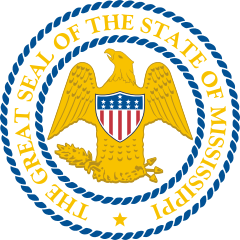 A June 24 federal runoff has been scheduled for the Mississippi Republican Senate primary. Incumbent Sen. Thad Cochran and state Sen. Chris McDaniel will battle again in a tea party vs. establishment showdown. With 49 and 49.5 percent respectively, neither candidate earned enough of the June 3 vote to secure the party nomination.
A June 24 federal runoff has been scheduled for the Mississippi Republican Senate primary. Incumbent Sen. Thad Cochran and state Sen. Chris McDaniel will battle again in a tea party vs. establishment showdown. With 49 and 49.5 percent respectively, neither candidate earned enough of the June 3 vote to secure the party nomination.
McDaniel, running on a platform of change, hopes to unseat the longtime incumbent. Cochran’s congressional tenure began in 1972; he then served three consecutive terms in the House and six consecutive terms in the Senate.
June 20, 2014 •
Wisconsin Governor Accused of Illegal Campaign Coordination
Prosecutors claim Gov. Scott Walker was involved with a plan to illegally coordinate fundraising with outside conservative groups to help him and several Republican senators survive a 2012 recall election. In court documents recently unsealed, prosecutors detail a criminal scheme […]
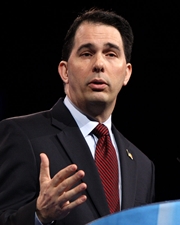 Prosecutors claim Gov. Scott Walker was involved with a plan to illegally coordinate fundraising with outside conservative groups to help him and several Republican senators survive a 2012 recall election. In court documents recently unsealed, prosecutors detail a criminal scheme by Walker and top aides to circumvent state law by helping plan campaign spending by a dozen outside groups.
Prosecutors claim Gov. Scott Walker was involved with a plan to illegally coordinate fundraising with outside conservative groups to help him and several Republican senators survive a 2012 recall election. In court documents recently unsealed, prosecutors detail a criminal scheme by Walker and top aides to circumvent state law by helping plan campaign spending by a dozen outside groups.
No charges have been filed against Walker or any of his staffers. The documents became public as part of an ongoing lawsuit by Wisconsin Club for Growth, a group at the center of the investigation. A federal appeals judge now is considering whether to permanently stop the investigation.
Photo of Gov. Scott Walker courtesy of Gage Skidmore on Wikimedia Commons.
June 20, 2014 •
News You Can Use Digest – June 20, 2014
National: Population Shifts Turning All Politics National New York Times – Ashley Parker and Jonathan Martin | Published: 6/15/2014 For all the talk about how partisan polarization is overwhelming Washington, there is another overlapping force at play: voters who are […]

National:
Population Shifts Turning All Politics National
New York Times – Ashley Parker and Jonathan Martin | Published: 6/15/2014
For all the talk about how partisan polarization is overwhelming Washington, there is another overlapping force at play: voters who are not deeply rooted in an area increasingly view politics through a generic national lens. It was newcomers from other parts of the country and even abroad to Virginia and Mississippi, more than any other voters, who most crucially rejected two influential Republican incumbents – House Majority Leader Eric Cantor and U.S. Sen. Thad Cochran – in recent primaries.
Federal:
Justices Say Public Workers Can Testify about Corruption
USA Today – Richard Wolf and Mary Orndorff Troyan | Published: 6/19/2014
The U.S. Supreme Court ruled unanimously that public employees are protected from retaliation when they testify in court about misconduct they observed on the job. Public employees who are called to testify are protected by the First Amendment just as other citizens are, and should not have to between “the obligation to testify truthfully and the desire to avoid retaliation and keep their jobs,” wrote Justice Sonia Sotomayor. The decision clarified previous rulings in which the court has said public employees have free-speech rights when they are acting as citizens, not when they are testifying to what they learned in their jobs or are required to speak about because of their specific duties.
Obama to Sign Order Barring U.S. Contractors from Job Bias Based on Sexual Orientation
Washington Post – Zachary Goldfarb and Juliet Eilperin | Published: 6/17/2014
President Barack Obama plans to sign an executive order barring federal contractors from hiring or firing employees based on their sexual orientation or gender identity. Obama is not expected to sign the order for weeks, as the White House finalizes details, including possible exemptions for religious nonprofit organizations. Administration officials said the president decided to act unilaterally in the absence of momentum for legislation with broader protections.
Soft Money’s Squishy Political Influence
New York Times – Derek Willis | Published: 6/18/2014
A report by Daniel Tokaji and Renata Strause of Ohio State University surveys the state of campaign finance and finds the relationship between candidates and like-minded independent groups is characterized by subtle cooperation, not outright coordination. For campaigns targeted by super PACs and other outside groups, the feeling is often one of helplessness. “It was like a giant poker game and I wasn’t even sitting at the table,” said a Senate campaign manager quoted in the report.
From the States and Municipalities:
Arizona – School Superintendent Huppenthal Acknowledges Anonymous Blog Posts
Arizona Republic – Cathryn Creno | Published: 6/19/2014
Arizona Superintendent of Public Instruction John Huppenthal said he is the author behind several anonymous blog posts that referred to welfare recipients as “lazy pigs” and Planned Parenthood as the cause of abortions among African-Americans. The comments date back to 2011 and were posted on political blogs. Huppenthal said he wrote them under different pseudonyms so he could have a more open dialogue without his position influencing the debate. Some experts say it is an ethical problem when elected officials do not state their opinions publicly.
Georgia – Ga. Settles with 3 Ex-Ethics Commission Employees
Washington Times – Christina Cassidy (Associated Press) | Published: 6/13/2014
The state has settled whistle-blower complaints by three former Georgia ethics commission employees for a total of $1.8 million. The settlements follow a jury verdict that awarded more than $1 million to a fourth employee, former commission Executive Secretary Stacey Kalberman. The state will pay $1 million to the panel’s former deputy, Sherry Streicker, $410,000 to former IT specialist John Hair, and $477,500 to former staff attorney Elisabeth Murray-Obertein.
Illinois – Billionaire Ken Griffin Gives Rauner Record-Breaking $2.5 Million
Chicago Sun-Times – Sandra Guy and Art Golab | Published: 6/13/2014
Billionaire hedge-fund founder Ken Griffin’s $2.5 million donation to the campaign of Republican Bruce Rauner has been termed the largest single donation in an Illinois governor’s race in the post-Watergate era. The limit on individual contributions is usually $5,300 in Illinois. But the law allows those caps to be lifted when contributions or loans from a candidate or candidate’s family surpass $250,000. Rauner gave $500,000 to his own campaign in November.
Massachusetts – Bill Would Increase PAC Disclosure
Boston Globe – Frank Phillips | Published: 6/18/2014
The Massachusetts Legislature is expected to pass a bill this summer that would increase disclosure requirements for super PACs. The bill would also double the amount of money individuals can give to state candidates from $500 to $1,000 a year, the first change to those limits in 20 years. The disclosure crackdown, also aimed at nonprofit advocacy groups that fund television ads, would go into effect immediately. The new individual donation limits would not take effect until next year.
Ohio – Lawmaker Might Face Charges over Gifts
Columbus Dispatch – Randy Ludlow | Published: 6/14/2014
Ohio Rep. Dale Mallory could face criminal charges for failing to disclose that lobbyist John Rabenold treated him to two meals and a Cincinnati Bengals game. Franklin County Prosecutor Ron O’Brien said Rabenold agreed to work with the FBI and Legislative Inspector General Tony Bledsoe in ongoing investigations into lawmakers who did not report gifts or accepted illegal gifts. The Joint Legislative Ethics Committee is expected to review the case and decide whether to make a referral to O’Brien for potential charges.
Ohio – U.S. Supreme Court Will Allow Constitutional Challenge of Ohio Law That Bars Campaign Lies
Cleveland Plain Dealer – Sabrina Eaton | Published: 6/16/2014
The U.S. Supreme Court allowed a challenge to an Ohio law banning lies in political campaigns to move forward. The court ruled two advocacy groups could challenge the state law that makes it a crime to make knowingly or recklessly false statements about political candidates that are intended to help elect or defeat them. Lower courts had dismissed the case, saying the organizations seeking to challenge it had not faced imminent harm sufficient to give them standing to sue. Justice Clarence Thomas, writing for the court, said the groups “have alleged a credible threat of enforcement” of the law and so were not barred from pursuing their challenge to it.
Pennsylvania – Improvements Seen in Phila. Lobbying Web Site
Philadelphia Inquirer – Alisha Green (Sunlight Foundation) | Published: 6/12/2014
The story of Philadelphia’s lobbying website highlights some of the problems that governments face with sharing this crucial data. Providing the information with enough detail and in a format that is easy to analyze and reuse is something few local jurisdictions have been able to accomplish so far. Philadelphia knew what it needed to do to improve lobbying transparency, but finding a way to implement those changes was the problem, according to an analysis by the Sunlight Foundation.
South Carolina – An Ethical Mess in South Carolina
The Center for Public Integrity – Corey Hutchins | Published: 6/17/2014
An ethics scandal involving the House speaker and difficulty in passing reform legislation are raising concerns about South Carolina’s legislatively dominated government structure, the efficacy of self-policing lawmakers, and the integrity of the state’s institutions. South Carolina earned an ‘F’ from the State Integrity Investigation, which graded states on their transparency, accountability, and risk for corruption. But despite calls for substantive reform from media, public interest groups, and the governor, the status quo remains.
Washington – Election Fallout: Judge says AG’s lawsuit against Grocery Manufacturers can move ahead
The Olympian – Brad Shannon | Published: 6/13/2014
A Thurston County judge rejected efforts by the Grocery Manufacturers Association to squelch a lawsuit in which Washington Attorney General Bob Ferguson accuses the trade association of laundering millions of dollars in last fall’s campaign. Ferguson has accused group of setting up a special fund to disguise the source of money spent to defeat Washington’s Initiative 522. But the judge scrap the state’s requirement that political committees collect at least $10 from 10 different registered voters in state before spending in a Washington campaign.
Washington – Legislative Ethics Board Weighs Limit on Free Meals from Lobbyists
The Olympian – Brad Shannon | Published: 6/17/2014
How often is “infrequent” when it comes to state lawmakers accepting free meals from lobbyists? Washington’s Legislative Ethics Board spent nearly two hours recently taking testimony on the issue and then grappling with the answer. So far, the board has considered several proposals, from as few as three meals annually to as many as 52 per year. It is currently taking comment from the public, lobbyists, and lawmakers before settling on a limit.
Wisconsin – Prosecutors Accuse Scott Walker of Running ‘Criminal Scheme’
Wisconsin State Journal – Mary Spicuzza | Published: 6/19/2014
Newly released documents show prosecutors allege Wisconsin Gov. Scott Walker was at the center of a nationwide “criminal scheme” to illegally coordinate with outside conservative groups. Prosecutors say Walker, his chief of staff, and others who worked for him were discussing illegal coordination with a number of national organizations and prominent figures, including Republican strategist Karl Rove, to fend off recalls targeting the governor and GOP state senators in 2011 and 2012.
 State and Federal Communications produces a weekly summary of national news, offering more than 80 articles per week focused on ethics, lobbying, and campaign finance.
State and Federal Communications produces a weekly summary of national news, offering more than 80 articles per week focused on ethics, lobbying, and campaign finance.
News You Can Use is a news service provided at no charge only to clients of our online Executive Source Guides, or ALERTS™ consulting clients.
June 19, 2014 •
South Carolina Senate Adjourns Without Ethics Reform
Lawmakers adjourned sine die without passing the ethics reform bill on Thursday, June 19, 2014. House Bill 3945 was blocked from a vote by Sen. Lee Bright and Sen. Tom Davis. On Wednesday, Lt. Gov. Glenn McConnell formally resigned to […]
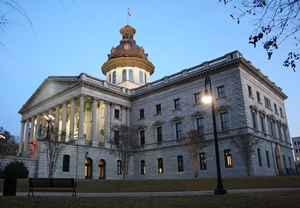 Lawmakers adjourned sine die without passing the ethics reform bill on Thursday, June 19, 2014.
Lawmakers adjourned sine die without passing the ethics reform bill on Thursday, June 19, 2014.
House Bill 3945 was blocked from a vote by Sen. Lee Bright and Sen. Tom Davis. On Wednesday, Lt. Gov. Glenn McConnell formally resigned to become president of the College of Charleston.
Senators then selected Sen. Yancey McGill to be the new lieutenant governor and Sen. Hugh Leatherman to be the new President Pro Tem.
Photo of the South Carolina State House by Florencebballer on Wikimedia Commons.
June 19, 2014 •
Ohio JLEC Issues Opinion on Tickets to Charitable Fundraisers
The Ohio Joint Legislative Ethics Committee recently issued an advisory opinion clarifying certain gift reporting requirements for members, candidates, and employees of the General Assembly. The opinion also applies to reports filed by any legislative agent providing a gift to […]
 The Ohio Joint Legislative Ethics Committee recently issued an advisory opinion clarifying certain gift reporting requirements for members, candidates, and employees of the General Assembly. The opinion also applies to reports filed by any legislative agent providing a gift to a reportable person.
The Ohio Joint Legislative Ethics Committee recently issued an advisory opinion clarifying certain gift reporting requirements for members, candidates, and employees of the General Assembly. The opinion also applies to reports filed by any legislative agent providing a gift to a reportable person.
Advisory Opinion 2014-003 speaks to the value of a complimentary ticket to a charitable fundraiser where the source of the ticket is a third party. When provided by a third party, a complimentary ticket to a non-political fundraiser is a gift, the value of which is the portion of the ticket price that is not tax-deductible.
Furthermore, such portion accrues toward any applicable gift limit. Conversely, a ticket to a charitable fundraiser where the source is the entity holding the event is not considered a gift.
June 17, 2014 •
WA Legislative Ethics Board Considers Infrequent Occasions
Section 42.52.420 of the Revised Code of Washington allows public officials to accept gifts in the form of food and beverage on infrequent occasions. In recent months, “infrequent occasions” has come under scrutiny after a widely-read report showed the state’s […]
 Section 42.52.420 of the Revised Code of Washington allows public officials to accept gifts in the form of food and beverage on infrequent occasions. In recent months, “infrequent occasions” has come under scrutiny after a widely-read report showed the state’s 50 most active lobbyists treated legislators to meals totaling more than $65,000 over a four-month period.
Section 42.52.420 of the Revised Code of Washington allows public officials to accept gifts in the form of food and beverage on infrequent occasions. In recent months, “infrequent occasions” has come under scrutiny after a widely-read report showed the state’s 50 most active lobbyists treated legislators to meals totaling more than $65,000 over a four-month period.
After the Legislature failed to pass any pertinent legislation before its adjournment on March 13, 2014, the Legislative Ethics Board took up the issue. The board held a meeting on June 17, 2014, to review proposals received from the public related to how to define infrequent occasions.
All of the proposals considered by the board would require legislators to file a report upon receiving a free meal. Stricter proposals set the dollar amount threshold for reporting the meal at $5 and the amount of free meals per year at three to five. Others set the threshold at $25 and allow 52 free meals per year. One especially ambitious proposal would require a reduction in a legislator’s per diem allowance for every free meal he or she accepts.
The board will continue to take public comment on the issue and will reconvene on August 19, 2014, to further consider public proposals.
The Colorado Supreme Court issued its decision today in Gessler v. Colorado Common Cause, upholding a lower court’s decision ruling Secretary of State Scott Gessler did not have the authority to raise campaign finance limits for political issue committees. In […]
 The Colorado Supreme Court issued its decision today in Gessler v. Colorado Common Cause, upholding a lower court’s decision ruling Secretary of State Scott Gessler did not have the authority to raise campaign finance limits for political issue committees. In 2002, voters passed a constitutional amendment creating a $200 contribution and expenditure threshold for issue committee status. The provision required both retrospective and prospective contribution and expenditure reporting once issue committee status was achieved.
The Colorado Supreme Court issued its decision today in Gessler v. Colorado Common Cause, upholding a lower court’s decision ruling Secretary of State Scott Gessler did not have the authority to raise campaign finance limits for political issue committees. In 2002, voters passed a constitutional amendment creating a $200 contribution and expenditure threshold for issue committee status. The provision required both retrospective and prospective contribution and expenditure reporting once issue committee status was achieved.
Gessler later promulgated Secretary of State Rule 4.1 to increase the threshold to $5,000 and eliminate retrospective reporting requirements. Because the secretary of state does not have the authority to promulgate rules in conflict with other provisions of law, the Court affirmed the appeals court judgment and set aside Rule 4.1.
June 16, 2014 •
Ohio Lawmakers to Introduce Campaign Finance Legislation
Ohio Reps. Nick Celebrezze and Ronald Gerberry announced plans last week to introduce legislation creating a campaign contribution blackout for the attorney general’s office. New legislation would prohibit contributions to the attorney general and to any party-endorsed candidates for the […]
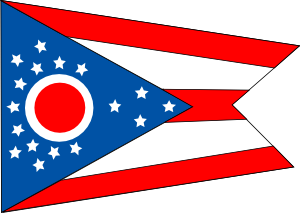 Ohio Reps. Nick Celebrezze and Ronald Gerberry announced plans last week to introduce legislation creating a campaign contribution blackout for the attorney general’s office. New legislation would prohibit contributions to the attorney general and to any party-endorsed candidates for the office while the office is reviewing bids on contract work.
Ohio Reps. Nick Celebrezze and Ronald Gerberry announced plans last week to introduce legislation creating a campaign contribution blackout for the attorney general’s office. New legislation would prohibit contributions to the attorney general and to any party-endorsed candidates for the office while the office is reviewing bids on contract work.
Celebrezze believes a blackout period will help eliminate the appearance of impropriety. Attorney General Mike DeWine, however, claims enforcement of the blackout periods makes the process inherently more political. Moreover, he said contributions have not influenced his decision to award contract work.
State and Federal Communications, Inc. provides research and consulting services for government relations professionals on lobbying laws, procurement lobbying laws, political contribution laws in the United States and Canada. Learn more by visiting stateandfed.com.

